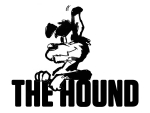OPINION: The move to ban export of livestock by sea from April next year is yet another example of the current Government’s all-controlling ethos.
It seems that when it comes to setting policy for the country’s all-important agriculture sector, this administration’s answer comes down to one of three ideas:
- Tax it
- Regulate it
- Ban it
When announcing the live export ban, Agriculture Minister Damien O’Connor claimed it “future-proofs our economic security amid increasing consumer scrutiny across the board on production practices”.
It is hard to translate what this gobbledygook actually means, other than a nebulous justification for another Government overreach. In reality, the Government ignored official and industry advice and made a political decision to please the loud and ill-informed voices of the animal activist protest lobby.
This is made clear by O’Connor’s acknowledgement of “the considerable support the Bill received from the public”.
Evidence shows it completely ignored efforts by the live export industry to introduce a highly regulated ‘Gold Standard’ for the sector.
It is obvious the Government had an agenda from the start and failed to consult in good faith with industry. According to live export sector organisation LENZ, the industry banded together to propose that the Government introduce much higher standards of care for the animals exported from New Zealand, when it started a review of the industry two years ago.
“We set out a clear and evidence-based 12-point regulatory plan to Minister O’Connor that would further improve and modernise the live animal export system,” LENZ’s Mark Willis says.
"We did not receive any response."
National has accused the Government of failing to carry out a robust economic analysis of the ban. The Government dismissed any economic impact of the ban as ‘minor’ in the context of the overall the $53 billion annual earnings of the agricultural sector.
However, according to an Infometrics Economic Impact Report this ban will reduce New Zealand’s gross domestic product by $472 million and cost export cattle breeders between $49,000 and $116,000 per farm. Hardly minor.
This live export ban is a prime example of ideology over reason and evidence.











